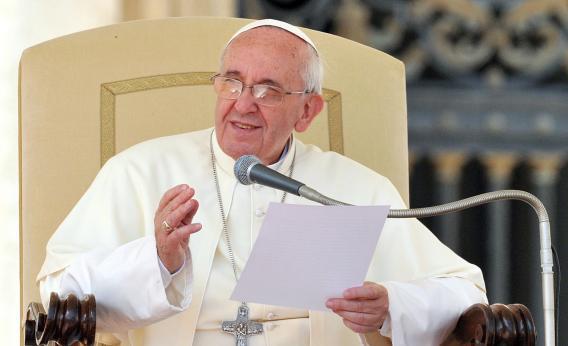As my colleague William Saletan writes, Pope Francis’ blockbuster interview with La Civilta Cattolica gives liberal Catholics a lot to be happy about. But in light of the Anglican Church’s experience in recent years, it made me wonder whether there was any risk of a similar scenario playing out for global Catholicism, particularly in the all-important African Catholic Churches. The previous archbishop of Canterbury, Rowan Williams, spent much of his tenure trying to keep the global Anglican community from fracturing over differing views of homosexuality. The issue came to a head in 2003, when the U.S. Episcopal Church consecrated the openly gay Gene Robinson of New Hampshire as a Bishop. The move led several African Anglican Churches, notably the Church of Nigeria led by the outspoken Bishop Peter Akinola, to break ties with the Episcopal Church, and even threaten to leave the Anglican Communion entirely. At one point, Conservative U.S. churches were even putting themselves under the supervision of African bishops. The Catholic Population in Africa is 176 million strong, 16 percent of the global flock, and is the Church’s fastest growing region. According to Vatican statistics, 800 new priests were added in Africa last year while Europe lost 905. This growth has given Africa a more significant voice at the Vatican and the Ghanaian Cardinal Peter Turkson was widely-considered a strong candidate for the papacy this year. As with the Anglicans, African churches tend to be on the Conservative side when it comes to social issues. Turkson, for instance, opposed the U.N.’s call for African countries to avoid laws outlawing homosexuality and suggested that the African “taboo” against homosexuality is would keep the Church’s pedophile scandals for spreading to the continent. The head of the Ugandan Catholic church did come out against the country’s uniquely harsh proposed anti-gay law in 2009, but maintained that “The Bible says homosexuality is strictly forbidden” and suggested that “rehabilitation” would be a better method. Robyn Dixon of the L.A. Times wrote during the papal conclave this year that “Ugandan church members hope their agenda — which decries Western social attitudes, particularly about homosexuality, while encouraging anti-poverty programs — will have informed the cardinals’ choice.” Moreover, the African Catholic Church, despite its growth, increasingly faces competition from independent—and often extremely culturally conservative—evangelical congregations. So could Francis’s comments provoke a schism in the Catholic Church? Paul Gifford, a professor of religion at the School of Oriental and African Studies in London and the author of several books on African Christianity, says it’s unlikely. “In my opinion, the Catholic church is just too centralized and hierarchical to split,” he wrote by e-mail. “What’s more Catholicism in Africa is not about homosexuality; those issues are fairly peripheral… They may be against it, but they are not continually going around fulminating on the question.” Gifford suggested that the church in Africa, politically speaking, focuses less on social issues like homosexuality than on poverty alleviation, an agenda the new pope has wholeheartedly embraced. “Schools, clinics, universities, slum clearance, AIDS: The Catholic Church will just get on with those things, while naturally nodding to what comes from Rome, but the emphasis is elsewhere.” Francis won’t be able to avoid social issue entirely when it comes to Africa. When Pope Benedict visited the continent on a multi-nation tour in 2010, he made global headlines by suggesting that condoms could sometimes be used for disease prevention. It’s also important to remember that unlike in the Anglican case, Francis hasn’t actually suggested a change in policy yet. As John Allen of the National Catholic Reporter notes, despite Francis’s gentler tone, he “has twice now uttered a firm “no” to women’s ordination to the priesthood, and he’s unlikely to radically change teaching on matters such as gay marriage, abortion or contraception.” Certainly, openly-gay bishops don’t seem likely in the near future. So any sort of split in the flock is unlikely, but the global church certainly is at a transformative moment in more ways than one.
The Anglican Scenario: Could Catholics Split Over Gay Rights?

Pope Francis delivers a speech during his general audience in St Peter’s square at the Vatican on September 18, 2013.
Photo by TIZIANA FABI/AFP/Getty Images
Advertisement